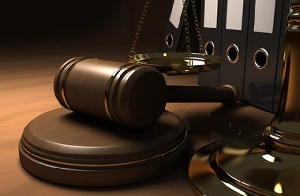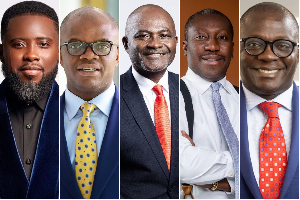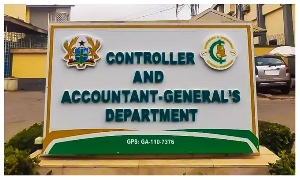One of the most respected professions in Ghana (if not the world) is that of a lawyer. No wonder the number of institutions accredited to run first degree programs in law have increased over the years. Also, the number of persons seeking to gain admission into the Ghana School of Law, the only institution with the mandate to provide training in the Barrister at Law program in Ghana, has increased overwhelmingly. Though the profession is much sought-after, it comes with its own ‘trials’.
On December 6, 2018, I was at the Supreme Court of the land at about 8am. I was there to witness a case of a client being represented by the firm I work with. At about 9:10am, the court clerk announced that a single Supreme Court Justice will be sitting to determine the cases before the court. It is worth mentioning that though Article 128(2) of the 1992 Constitution posit that the Supreme Court shall be duly constituted for its work by not less than 5 Justices, it is quite normal to see a single Supreme Court Justice sit. This is backed by the provision of Article 134 of the 1992 Constitution.
The atmosphere was a mixture of calmness and seriousness when the single Justice walked in and took his seat at the Bench. The first business for the day was announced by the court clerk. This began the entire amazing experience which has necessitated this ‘piece’ from me.
The first business for the day was an application for extension of time to bring ‘an application for certiorari’ to quash a decision of a High Court judgment made in June 2015. A certiorari application in plain language is an application brought before a Superior Court to dismiss or quash a decision of a court below.
The uniqueness of this application for certiorari in the Supreme Court was that it was drafted by a non-lawyer. The person, was also not represented by a lawyer. Although the rules permits a person to appear in court unrepresented, for equity and in the interest of justice, such an unrepresented person shall be assisted and given special regard by the court. It is entirely normal for a person to litigate his case in court without engaging the services of a lawyer. The case of Bako-Alhassan v. Attorney-General [2013-2014] 2 SCGLR 823 is an authority to that effect.
Before I proceed, I would wish to make it clear to my readers that, the same way one would need to hire a plumber to carry out a plumbing job, a nurse to execute the duties of a nurse, a mechanic to fix a faulty vehicle, an accountant to prepare the books of an entity, one would also need the services of a lawyer when the law comes to play. Order 4 of the High Court (Civil Procedure) Rules (C.I. 47) posit that a company shall not commence or carry on a legal action except through a lawyer. Article 14(2) of the 1992 Constitution of Ghana also posit that an arrested, restricted or detained person shall be informed immediately of his right to a lawyer. This should suggest to my readers that the services of a lawyer is sine qua non when the law is to be put to work.
For the purpose of this ‘piece’ I shall call the unrepresented party Mr. A. Standing in the middle of the court room Mr. A attempted to argue his case.
The Justice was patient, tolerant and assisted Mr. A (having recognized that Mr. A did not fully understand what he actually wanted from the court). The Justice even went further to attempt to appoint a lawyer for Mr. A in accordance with Section 114 of the Courts Act (Act 459). This however yielded no positive result because the few lawyers present in court were overwhelmed with briefs and could not take on any extra brief.
The moment of ‘excitement’ came when Mr. A made some stunning revelations in court. Mr. A averred that, he was once represented by a lawyer who was appointed to him by the Legal Aid Scheme, Ghana. However, per Mr. A’s averments, he disengaged the services of the said lawyer. This was because the lawyer in question was not good enough (according to Mr. A). Mr. A further made averments that he insulted the said lawyer in open court and went further to report him (the lawyer in question) to the General Legal Council.
The questions I posed to myself were as follows:
· Would you insult a physician who is attending to you in times of illness?
· Would you insult a dentist who is about to treat you of a toothache?
· Would you insult a police officer who is in-charge of the security in your vicinity?
If the answers to the above questions are not in the affirmative, why then do people seek to insult, humiliate, and disparage lawyers whenever they are not happy with the services being offered?
There are various laws governing the practice and profession of lawyers. Notable among them are the Legal Profession Act (Act 30), Legal Profession (Professional Conduct and Etiquette) Rules (L.I. 613) as well as Ghana Bar Association Code of Ethics. All three laws empowers a dissatisfied and aggrieved client to report his lawyer to the General Legal Council for appropriate action(s) to be taken. There is NO LAW in Ghana which empower an aggrieved and dissatisfied client of a lawyer to subject the lawyer to insults.
It is important to mention that the offence of assault is part of our jurisprudence, per Section 84 of the Criminal Offences Act (Act 29). Maybe the time is ripe for lawyers to start suing clients who subject them to insults and the likes.
No dissatisfied and aggrieved client should insult his lawyer.
By: Agyeman Peprah Berko
Email: peprah.berko@yahoo.com
Opinions of Sunday, 30 December 2018
Columnist: Agyeman Peprah Berko















